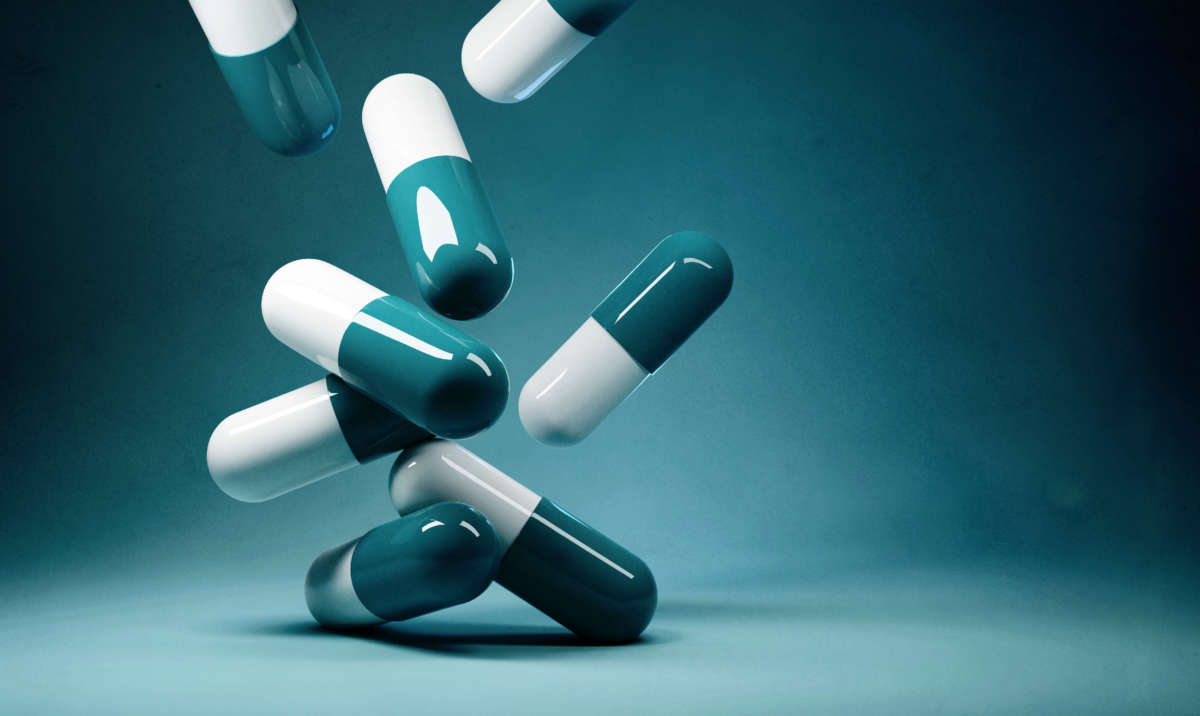A new analysis by Public Citizen found that the U.S. is spending nearly double what the rest of the world spends combined for key drugs. The report offers further evidence that the country is in dire need of pharmaceutical drug price reformation, which progressives are fighting for through the Build Back Better Act.
The report finds that, for the 20 top-selling drugs worldwide, U.S. sales totaled $101.1 billion, while sales of the same drugs to the rest of the world totaled almost $57 billion in 2020. For 11 of the drugs, revenue in the U.S. was double that of the rest of the world combined. And for 11 of the 13 pharmaceutical companies that sell these drugs, U.S. profits made up most of their revenue.
For some of the drugs, the analysis found an egregious revenue difference. For Biktarvy, an HIV medication produced by Gilead Sciences, the U.S. sales revenue was five times the rest of the worlds’ revenue; for AbbVie’s Humira, which treats autoimmune diseases, four times greater; and three times greater for drugs like Type 2 diabetes medication Trulicity.
“Americans spend far too much on prescription drugs,” reads the report. “This analysis of the billions more in revenue that pharmaceutical corporations make from the U.S. compared to the rest of the world offers a glimpse of how much these businesses benefit from the American health care system overpaying for drugs.”
2020 sales on drugs in US vs rest of world combined:
Biktarvy (HIV)
US: $6.1B
World: $1.2BHumira (autoimmune)
US: $16.1B
World: $3.7BTrulicity (diabetes)
US: $3.8B
World: $1.2BRevlimid (blood cancer)
US: $8.3B
World: $3.8BPharma is ripping America off to absurd degrees.
— Public Citizen (@Public_Citizen) September 30, 2021
Though drug prices across countries remain opaque, studies have shown that people in the U.S. consume a comparable amount of prescription drugs to people in other countries. This suggests that Public Citizen’s findings aren’t due to higher unit sales of drugs in the U.S., but rather higher prices.
Previous research have produced similar findings. Earlier this year, a report by the U.S. Government Accountability Office (GAO) found that the U.S. is paying two to four times as much on average for the same 20 name brand drugs in places like Australia and France. The GAO found this was true even in Canada, where the government’s universal health care system doesn’t include coverage of prescription drugs. The study was commissioned by Sen. Bernie Sanders (I-Vermont), who believes that allowing the government to negotiate drug prices in the U.S. is “long overdue.”
Public Citizen’s analysis comes at a time when Congress is fighting over a proposal to allow Medicare to negotiate prescription drug prices. Democrats estimate that the plan could save the government about $450 billion over the next 10 years. More importantly, it’s not just an abstract plan that would have roundabout effects on the public: the plan could save lives.
Recent polling has found that 18 million Americans, or about 7 percent of the U.S. adult population, say that they recently couldn’t afford to purchase a needed drug for themselves or for someone in their household. The poll, which was conducted by Gallup, also found that 10 percent of American adults report skipping doses to save money.
Though it is difficult to quantify how many people have died from not being able to afford needed drugs, a 2019 study found that over 13 percent of Americans knew someone who had died in the previous five years after not being able to afford treating a health condition. A study conducted last year found that high out-of-pocket drug costs are expected to cause 1.1 million premature deaths for seniors on Medicare, costing the program an extra $177.4 billion.
To mitigate this crisis, Public Citizen says that Congress should pass the proposal to allow Medicare to negotiate drug prices. “Granting Medicare the authority to push back against pharmaceutical company profiteering would mean an end to decades of overpaying for medicines – and the beginning of billions in cost-savings that could be used to improve and expand Medicare, including by increasing access to treatments as well as to dental, hearing and visual care,” the report reads.
Progressive lawmakers have been fighting to include the proposal in the Build Back Better Act. “Thousands of people die every year because they can’t afford the medicine that they need,” Sanders said on CNN last month. “The question is whether we have the guts to stand up to what is an incredibly powerful lobby.”
The pharmaceutical industry lobby has vast influence over U.S. politics; this year alone, the pharmaceutical/health products industry has spent $171 million lobbying lawmakers. Last year, the industry spent over $300 million on lobbying.The industry has been influencing conservative Democrats to fight against proposals to lower drug prices, and recently pushed representatives to remove the drug price negotiation proposal from the Build Back Better bill.
The right-wing Democrats removed the proposal despite recent polling by Data for Progress showing that a majority of Republican, Independent and Democratic voters are in support of the drug price negotiation plan, with 73 percent of all voters supporting the proposal and only 18 percent opposing.
Join us in defending the truth before it’s too late
The future of independent journalism is uncertain, and the consequences of losing it are too grave to ignore. To ensure Truthout remains safe, strong, and free, we need to raise $43,000 in the next 6 days. Every dollar raised goes directly toward the costs of producing news you can trust.
Please give what you can — because by supporting us with a tax-deductible donation, you’re not just preserving a source of news, you’re helping to safeguard what’s left of our democracy.
